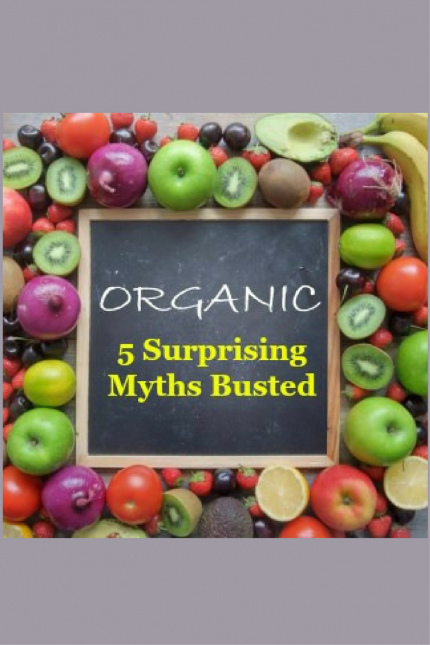Organic produce market: worth it or not?
Organic, natural, non GMO, refined sugar free, nut free, gluten free, dairy free…
There are so many labels given to our foods these days that it can be really overwhelming to know what you should buy and feed your families.
Of course, sometimes nature or a medical condition determines some of those choices – allergies and intolerances for example might mean that you have to prepare nut free, dairy free and/or gluten free meals.
So is it worth adding any more stress to your busy week by strictly sticking to the organic produce market for meat, fruit, vegetables and other products?
Well, it’s certainly a personal choice, and one that might be dictated by your family budget. After all, maintaining a strict organic diet can become very expensive!
But I wanted to make a couple of things (hopefully) easier for you to in terms of what organic produce actually means. If, like me, you’re surprised by any of these facts, then hopefully I’ve helped you to make more informed choices for you and your family!

Myth #1 Organic means pesticide free
It’s true that the pesticides used by organic farmers are not always as harmful as those used in traditional farming methods, but it still doesn’t mean they’re totally ‘natural’ or completely pesticide free.
Of course, we can’t forget the media frenzy over Monsanto’s use of Roundup pesticide, and we definitely want to avoid that – so buying organic might then be your only option.
Just be clear though, that the produce isn’t going to be completely pesticide free, unless you grow it yourself in your own back yard!
Myth #2 Non-organic meat contains high level of antibiotics
This was a hard one for me to learn…I wrongly assumed that the expensive meat on the shelves at the organic produce market was the best option because of the lack of antibiotics given to the animal that would end up in our systems.
But this is often misleading – conventional, ‘non organic’ meat has also probably not had any or enough antibiotics to even enter our system due to the rigorous process the farming industry has to adhere to.

Myth #3 Organic means GMO free… and all GMO produce is bad
Another intriguing one to discover! The marketing and scare campaigns of the 90’s are still prevalent today about the cancer causing properties of Genetically Modified Organisms (GMO). But in reality many GMO forms of produce are just as healthy as the non-GMO, or organically labelled food items.
Myth #4 The ‘dirty dozen’ and ‘clean fifteen’ lists should be followed strictly
If you’ve ever heard of the ‘dirty dozen’ list of food items that you should avoid unless they are organic (and the ‘clean fifteen’ list of items you can eat without them having to be organic), then you might also be disappointed to learn that the science behind the lists doesn’t always stack up.
The list is based on generic pesticide use, but doesn’t take into account the varying dangers of the pesticides on the list. So while it might not be completely false, it’s also a little misleading.
Myth #5 Organic produce has a higher nutritional content
Unfortunately, a group of Stanford researchers found no evidence that this is true – and they looked at over 250 studies across all food groups including meat, dairy and fresh produce.
So, while it might be nice to visit your local organic produce market and try their offerings, don’t make improved levels of nutrition the only reason you shop there.
So, should you buy organic or not?
This comes down to a totally personal choice that each family has to make, based on budget, medical conditions and preference. Taste is also an important factor, as we can often be tricked into thinking organic produce tastes better when it might not always be the case.
I guess a good guideline to follow is to try and stick to locally grown produce over whether it’s organic or not. If you’re lucky enough to live near a pick-your-own farm, then get the whole family involved in selecting the most seasonal produce. It’s also an opportunity to speak directly to the famers and learn more about their methods of crop production.
If you’re left only with supermarket choices, then look at the quality of the produce on offer and make your selection for meals based on the most seasonally available produce as much as possible.
There’s a reason why strawberries aren’t available all year round and the ones that are shipped thousands of miles might not be the most palatable option – whether organic or not.
I’d love to know your take on the whole organic or not debate! Add your comments below…
